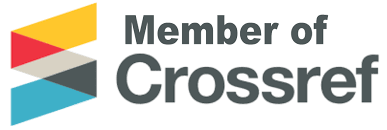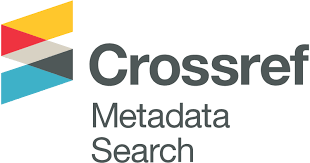About the Journal
![]()
Introduction
The North African Journal of Food and Nutrition Research (NAJFNR) is an esteemed international scholarly publication, rigorously peer-reviewed and accessible online.
Further underscoring its academic standing, the NAJFNR has been officially categorized as a Rank B journal by the Algerian Scientific Journal Platform (ASJP).
Original research, comprehensive reviews, insightful case reports, hypothesis formulation, expert opinions, and thought-provoking commentaries are all welcome for consideration.
The primary mission of NAJFNR is to serve as an invaluable resource for researchers and practitioners, fostering their understanding of nutrition and its advancement, particularly within developing countries, with a primary focus on Africa.
Business Model and Ownership
Our journal operates on a mission to advance knowledge by providing a high-quality platform for scholarly communication. To support this mission, we have a clear and transparent business model and ownership structure.
Ownership and Governance:
The NAJFNR is administered by AfAc Publisher and enjoys the sponsorship of its esteemed founders, Professors Meghit Boumediene KHALED and Mustapha DIAF. The journal operates under the patronage of the Ministry of Higher Education and Scientific Research, specifically through its General Directorate for Scientific Research and Technological Development (DGRSDT) (www.dgrsdt.dz).
Our governance structure is designed to maintain academic independence and integrity. The Editorial Board, comprised of active researchers from diverse fields, has complete authority over all editorial decisions
Our Commitment to Transparency and Accuracy
We are dedicated to providing clear, honest, and accurate information on our website. Our goal is to ensure you have a straightforward and trustworthy experience. We commit to the following principles:
-
Accuracy: We strive to ensure that all information on the journal website, from product descriptions to our company's mission, is correct and up-to-date.
-
Honesty: We will never use misleading language or deceptive marketing to influence your decisions. Our content is designed to be helpful, not manipulative.
-
Clarity: We use simple, direct language to make our information easy to understand. If you find something that is not clear, we want to know about it.
Your trust is our top priority. If you ever come across information you believe is inaccurate or misleading, please contact us directly. We are committed to correcting any errors swiftly and openly.
Journal Licensing
Published articles in The North African Journal of Food and Nutrition Research are licensed under the Creative Commons Attribution 4.0 International License (CC BY 4.0), permitting unrestricted use, distribution, and reproduction in any medium, provided proper citation is given. © 2017 The Authors.
Moreover, articles featured in The North African Journal of Food and Nutrition Research are also archived in reputable databases and data repositories such as Mendeley Data, AJOL, Google Scholar, and other data repositories.
Publication charges
Submission fees:
We are committed to maintaining the highest standards of scholarly publishing while ensuring the sustainability of the North African Journal of Food and Nutrition Research (NAJFNR). Our primary business model is Open Access. To support our operations and continue providing quality services, we will implement Article Processing Charges (APCs) effective April 20, 2025. (For more information please visit this webpage).
Separation of Business and Editorial Decisions:
We maintain a strict and fundamental separation between our business and editorial operations. This is a non-negotiable principle that safeguards the integrity of our peer-review process and the quality of our publications.
-
Independence of Editorial Decisions: Editorial decisions—including whether to send a manuscript for peer review, its acceptance, revision, or rejection—are made solely by the Editor-in-Chief and the Editorial Board. These decisions are based exclusively on the academic merit, scientific rigor, and relevance of the manuscript.
-
Advertising Policy: Our journal may feature advertising that is relevant to our readership. However, all advertising is managed by the business office, and the content or placement of ads has no influence on editorial decisions. Advertising revenue does not impact the outcome of a manuscript's review process (for more details please visit this webpage).
-
APC Payments: The payment of an APC is a condition of publication, not a prerequisite for peer review. Our editorial team makes a final decision on a manuscript's acceptance before any APC is collected. This ensures that the ability to pay does not factor into the decision to publish. We also offer waivers or discounts for authors to ensure equity and accessibility (for more details please visit this webpage).
Our commitment to this separation is a cornerstone of our credibility and a promise to our authors, reviewers, and readers that the research we publish is selected on its merits alone.
Archiving and Repository Policy
The North African Journal of Food and Nutrition Research (NAJFNR) ensures long-term digital preservation through the PKP Preservation Network (PKP PN), the archiving service of the Public Knowledge Project, which permanently safeguards content published via Open Journal Systems (OJS).
To maximize accessibility, NAJFNR articles are indexed in databases such as:
-
Google Scholar (for broad discoverability)
-
African Journals Online (AJOL) (for regional visibility)
All published articles are assigned a persistent DOI (Digital Object Identifier) through CrossRef, ensuring permanent citability even if URLs change.
For more information please visit: https://najfnr.com/home/archiving-policy
Direct Marketing and Ethical Practice
To ensure the research published in our journal reaches the widest possible audience and makes a meaningful impact, we actively promote our content to the relevant scholarly community. Our direct marketing efforts are focused on connecting published works with researchers, practitioners, and institutions who will benefit most from the findings.
- We send notifications about new issues and articles directly to individuals and institutions within the specific academic fields and disciplines covered by our journal.
- We use professional social media platforms such as Linkedin to highlight key articles, connect with authors, and share discussions related to the research we publish.
- We maintain a subscription-based newsletter to keep our community informed about new publications, special issues, and important journal updates.
We are deeply committed to conducting our direct marketing in a way that is respectful, transparent, and ethical. Our practices are guided by the following principles
- We only contact individuals who have explicitly opted in, such as through newsletter subscriptions or prior engagement. We never use third-party mailing lists.
- All messages clearly state their purpose.
- Personal data is handled securely and never sold or shared. Our communications are managed in-house to promote our published research while respecting privacy and user choice.
By following these principles, we strive to build a trustworthy relationship with the scholarly community and ensure that our direct marketing serves its primary purpose: to maximize the visibility and citation potential of our authors' work while respecting the privacy and choices of our readers.
The NAJFNR is:

https://www.doi.org/10.51745/najfnr.5.11.340-348
DOI resolver prefix suffix
The prefix "10.51745" is attributed by the Crossref Organization
The suffix is composed of: najfnr.5.11.340-348
najfnr: abbreviation of the journal name
5: number of volume
11: number of issue
340-348: number of pages

